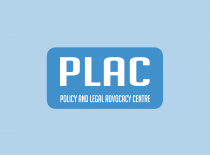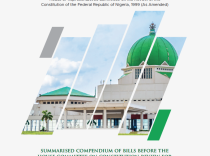The Senate Joint Committees on Appropriations and Finance presented its report on the implementation of the 2017 Budget at its plenary session of Thursday, 5 October 2017, following its briefing with the Minister of Finance, Mrs. Kemi Adeosun and Minister of Budget and National Planning, Sen. Udoma Udo Udoma.
Presenting the report, Sen. Danjuma Goje (APC: Gombe), Chairman Committee on Appropriations, stated that the objective of the Committee’s briefing with the Ministers was to ascertain the level of the implementation of the 2017 budget, the cause of inadequate and untimely release of funds and the measures taken to ensure that the budget achieves its purpose of recovery and growth.
Sen. Goje in a brief but detailed submission informed the Senate that during the meeting, the Ministers had explained the process of funding for recurrent and capital expenditures. In particular, he mentioned they had stated that the cumulative releases on Personnel Cost, Overhead Cost, Capital and Statutory Transfers stood at N1.5trillion, N92.5billion, N340.9billion and N128.8billion respectively.
He also listed some important outcomes from the meeting by highlighting observations by the committee, which indicates that:
- The sum of N340, 892, 841, 251 has been released so far for the Capital component of the 2017 budget;
- The sum of N100, 000,000,000 allotted to the Ministry of Power, Works and Housing in the 2017 budget will be released within the month of October;
- The executive claimed that it was dependent on the resolution of the National Assembly on requests for external borrowing to enable it, (that is the Executive) finance the capital component of the budget since external debts have longer terms and lower rates;
- The executive was focused on the completion of priority projects that are almost complete, rather than actually implementing the budget as passed;
- Efforts were being made to conclude the cycle of the budget by December 2017 and to have the 2018 budget proposal presented before the National Assembly by October 2017;
- 60% of the capital component of the 2017 budget maybe rolled over to 2018;
- The short-fall in the personnel cost of Ministries Department and Agencies (MDAs) resulted from either errors in the budget or from un-approved employment of staff;
- The synergy between parastatals and agencies with independent budgetary approvals and its supervisory Ministries is non-existent; and
- There are revenue leakages of operating surpluses that agencies were not remitting to the Consolidated Revenue Fund (CRF).
In view of the observations above, the Committee recommended that the Senate approve the following resolutions, which were eventually adopted:
- That the issues bordering on external borrowing between the Executive and the Legislature be resolved without delay;
- That necessary steps be taken to ensure that the Executive do not engage in selective implementation under the pretence of completing priority projects;
- That the Executive be urged to return to the budget cycle of one financial year from January-December;
- That the 2018 budget proposal be passed expeditiously when presented to the National Assembly to allow for full implementation;
- That the Executive be encouraged to mandate all MDAs to register on the Integrated Payroll and Personnel Information (IPPIS) platform;
- That the use of operating surplus of Internally Generated Revenue (IGR) of government owed enterprise such as Central Bank of Nigeria (CBN), Nigerian Maritime Administration and Safety Agency (NIMASA) and the Nigerian Ports Authority (NPA) in funding the budget should be explored; and
- That the Executive should be encouraged to block all leakages of operational surpluses of MDAs.





